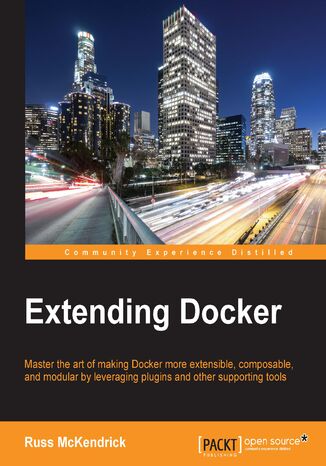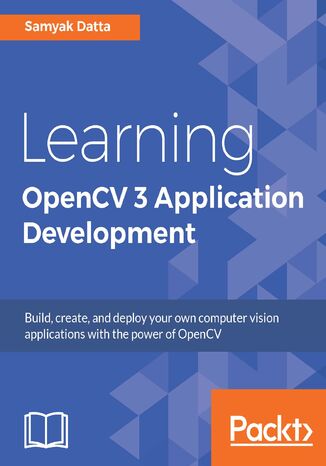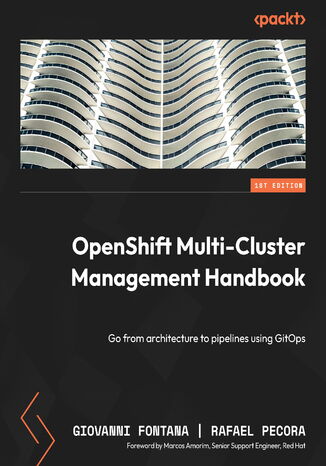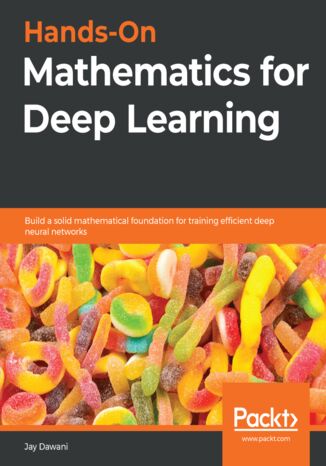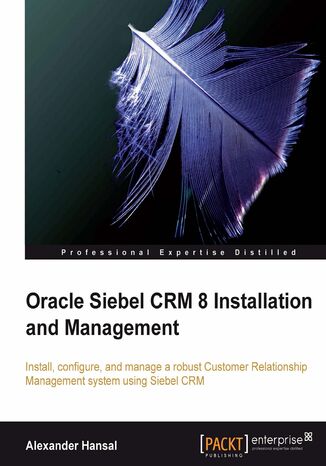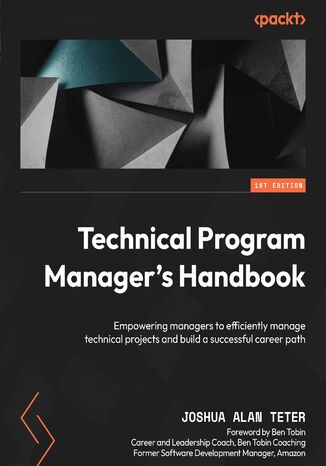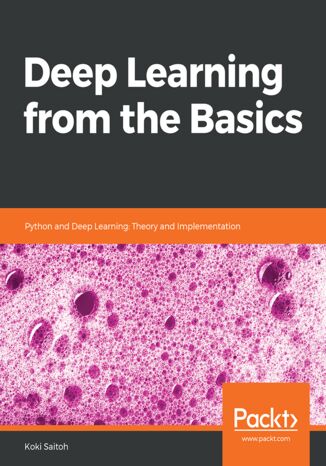Категорії
Електронні книги
-
Бізнес та економіка
- Біткойн
- Ділова жінка
- Коучинг
- Контроль
- Електронний бізнес
- Економіка
- Фінанси
- Фондова біржа та інвестиції
- Особисті компетенції
- Комп'ютер в офісі
- Комунікація та переговори
- Малий бізнес
- Маркетинг
- Мотивація
- Мультимедійне навчання
- Нерухомість
- Переконання та НЛП
- Податки
- Соціальна політика
- Порадники
- Презентації
- Лідерство
- Зв'язки з громадськістю
- Звіти, аналізи
- Секрет
- Соціальні засоби комунікації
- Продаж
- Стартап
- Ваша кар'єра
- Управління
- Управління проектами
- Людські ресурси (HR)
-
Для дітей
-
Для молоді
-
Освіта
-
Енциклопедії, словники
-
Електронна преса
- Architektura i wnętrza
- Безпека життєдіяльності
- Biznes i Ekonomia
- Будинок та сад
- Електронний бізнес
- Ekonomia i finanse
- Езотерика
- Фінанси
- Особисті фінанси
- Бізнес
- Фотографія
- Інформатика
- Відділ кадрів та оплата праці
- Для жінок
- Комп'ютери, Excel
- Бухгалтерія
- Культура та література
- Наукові та академічні
- Охорона навколишнього середовища
- Впливові
- Освіта
- Податки
- Подорожі
- Психологія
- Релігія
- Сільське господарство
- Ринок книг і преси
- Транспорт та спедиція
- Здоров'я та краса
-
Історія
-
Інформатика
- Офісні застосунки
- Бази даних
- Біоінформатика
- Бізнес ІТ
- CAD/CAM
- Digital Lifestyle
- DTP
- Електроніка
- Цифрова фотографія
- Комп'ютерна графіка
- Ігри
- Хакування
- Hardware
- IT w ekonomii
- Наукові пакети
- Шкільні підручники
- Основи комп'ютера
- Програмування
- Мобільне програмування
- Інтернет-сервери
- Комп'ютерні мережі
- Стартап
- Операційні системи
- Штучний інтелект
- Технологія для дітей
- Вебмайстерність
-
Інше
-
Іноземні мови
-
Культура та мистецтво
-
Шкільні читанки
-
Література
- Антології
- Балада
- Біографії та автобіографії
- Для дорослих
- Драми
- Журнали, щоденники, листи
- Епос, епопея
- Нарис
- Наукова фантастика та фантастика
- Фельєтони
- Художня література
- Гумор, сатира
- Інше
- Класичний
- Кримінальний роман
- Нехудожня література
- Художня література
- Mity i legendy
- Лауреати Нобелівської премії
- Новели
- Побутовий роман
- Okultyzm i magia
- Оповідання
- Спогади
- Подорожі
- Оповідна поезія
- Поезія
- Політика
- Науково-популярна
- Роман
- Історичний роман
- Проза
- Пригодницька
- Журналістика
- Роман-репортаж
- Romans i literatura obyczajowa
- Сенсація
- Трилер, жах
- Інтерв'ю та спогади
-
Природничі науки
-
Соціальні науки
-
Шкільні підручники
-
Науково-популярна та академічна
- Археологія
- Bibliotekoznawstwo
- Кінознавство / Теорія кіно
- Філологія
- Польська філологія
- Філософія
- Finanse i bankowość
- Географія
- Економіка
- Торгівля. Світова економіка
- Історія та археологія
- Історія мистецтва і архітектури
- Культурологія
- Мовознавство
- літературні студії
- Логістика
- Математика
- Ліки
- Гуманітарні науки
- Педагогіка
- Навчальні засоби
- Науково-популярна
- Інше
- Психологія
- Соціологія
- Театральні студії
- Богослов’я
- Економічні теорії та науки
- Transport i spedycja
- Фізичне виховання
- Zarządzanie i marketing
-
Порадники
-
Ігрові посібники
-
Професійні та спеціальні порадники
-
Юридична
- Безпека життєдіяльності
- Історія
- Дорожній кодекс. Водійські права
- Юридичні науки
- Охорона здоров'я
- Загальне, компендіум
- Академічні підручники
- Інше
- Закон про будівництво і житло
- Цивільне право
- Фінансове право
- Господарське право
- Господарське та комерційне право
- Кримінальний закон
- Кримінальне право. Кримінальні злочини. Кримінологія
- Міжнародне право
- Міжнародне та іноземне право
- Закон про охорону здоров'я
- Закон про освіту
- Податкове право
- Трудове право та законодавство про соціальне забезпечення
- Громадське, конституційне та адміністративне право
- Кодекс про шлюб і сім'ю
- Аграрне право
- Соціальне право, трудове право
- Законодавство Євросоюзу
- Промисловість
- Сільське господарство та захист навколишнього середовища
- Словники та енциклопедії
- Державні закупівлі
- Управління
-
Путівники та подорожі
- Африка
- Альбоми
- Південна Америка
- Центральна та Північна Америка
- Австралія, Нова Зеландія, Океанія
- Австрія
- Азії
- Балкани
- Близький Схід
- Болгарія
- Китай
- Хорватія
- Чеська Республіка
- Данія
- Єгипет
- Естонія
- Європа
- Франція
- Гори
- Греція
- Іспанія
- Нідерланди
- Ісландія
- Литва
- Латвія
- Mapy, Plany miast, Atlasy
- Мініпутівники
- Німеччина
- Норвегія
- Активні подорожі
- Польща
- Португалія
- Інше
- Przewodniki po hotelach i restauracjach
- Росія
- Румунія
- Словаччина
- Словенія
- Швейцарія
- Швеція
- Світ
- Туреччина
- Україна
- Угорщина
- Велика Британія
- Італія
-
Психологія
- Філософія життя
- Kompetencje psychospołeczne
- Міжособистісне спілкування
- Mindfulness
- Загальне
- Переконання та НЛП
- Академічна психологія
- Психологія душі та розуму
- Психологія праці
- Relacje i związki
- Батьківство та дитяча психологія
- Вирішення проблем
- Інтелектуальний розвиток
- Секрет
- Сексуальність
- Спокушання
- Зовнішній вигляд та імідж
- Філософія життя
-
Релігія
-
Спорт, фітнес, дієти
-
Техніка і механіка
Аудіокниги
-
Бізнес та економіка
- Біткойн
- Ділова жінка
- Коучинг
- Контроль
- Електронний бізнес
- Економіка
- Фінанси
- Фондова біржа та інвестиції
- Особисті компетенції
- Комунікація та переговори
- Малий бізнес
- Маркетинг
- Мотивація
- Нерухомість
- Переконання та НЛП
- Податки
- Соціальна політика
- Порадники
- Презентації
- Лідерство
- Зв'язки з громадськістю
- Секрет
- Соціальні засоби комунікації
- Продаж
- Стартап
- Ваша кар'єра
- Управління
- Управління проектами
- Людські ресурси (HR)
-
Для дітей
-
Для молоді
-
Освіта
-
Енциклопедії, словники
-
Електронна преса
-
Історія
-
Інформатика
-
Інше
-
Іноземні мови
-
Культура та мистецтво
-
Шкільні читанки
-
Література
- Антології
- Балада
- Біографії та автобіографії
- Для дорослих
- Драми
- Журнали, щоденники, листи
- Епос, епопея
- Нарис
- Наукова фантастика та фантастика
- Фельєтони
- Художня література
- Гумор, сатира
- Інше
- Класичний
- Кримінальний роман
- Нехудожня література
- Художня література
- Mity i legendy
- Лауреати Нобелівської премії
- Новели
- Побутовий роман
- Okultyzm i magia
- Оповідання
- Спогади
- Подорожі
- Поезія
- Політика
- Науково-популярна
- Роман
- Історичний роман
- Проза
- Пригодницька
- Журналістика
- Роман-репортаж
- Romans i literatura obyczajowa
- Сенсація
- Трилер, жах
- Інтерв'ю та спогади
-
Природничі науки
-
Соціальні науки
-
Науково-популярна та академічна
-
Порадники
-
Професійні та спеціальні порадники
-
Юридична
-
Путівники та подорожі
-
Психологія
- Філософія життя
- Міжособистісне спілкування
- Mindfulness
- Загальне
- Переконання та НЛП
- Академічна психологія
- Психологія душі та розуму
- Психологія праці
- Relacje i związki
- Батьківство та дитяча психологія
- Вирішення проблем
- Інтелектуальний розвиток
- Секрет
- Сексуальність
- Спокушання
- Зовнішній вигляд та імідж
- Філософія життя
-
Релігія
-
Спорт, фітнес, дієти
-
Техніка і механіка
Відеокурси
-
Бази даних
-
Big Data
-
Biznes, ekonomia i marketing
-
Кібербезпека
-
Data Science
-
DevOps
-
Для дітей
-
Електроніка
-
Графіка / Відео / CAX
-
Ігри
-
Microsoft Office
-
Інструменти розробки
-
Програмування
-
Особистісний розвиток
-
Комп'ютерні мережі
-
Операційні системи
-
Тестування програмного забезпечення
-
Мобільні пристрої
-
UX/UI
-
Веброзробка, Web development
-
Управління
Подкасти
With Docker, it is possible to get a lot of apps running on the same old servers, making it very easy to package and ship programs. The ability to extend Docker using plugins and load third-party plugins is incredible, and organizations can massively benefit from it.In this book, you will read about what first and third party tools are available to extend the functionality of your existing Docker installation and how to approach your next Docker infrastructure deployment. We will show you how to work with Docker plugins, install it, and cover its lifecycle. We also cover network and volume plugins, and you will find out how to build your own plugin. You’ll discover how to integrate it with Puppet, Ansible, Jenkins, Flocker, Rancher, Packer, and more with third-party plugins. Then, you’ll see how to use Schedulers such as Kubernetes and Amazon ECS. Finally, we’ll delve into security, troubleshooting, and best practices when extending Docker.By the end of this book, you will learn how to extend Docker and customize it based on your business requirements with the help of various tools and plugins.
Learning OpenCV 3 Application Development
Computer vision and machine learning concepts are frequently used in practical computer vision based projects. If you’re a novice, this book provides the steps to build and deploy an end-to-end application in the domain of computer vision using OpenCV/C++. At the outset, we explain how to install OpenCV and demonstrate how to run some simple programs. You will start with images (the building blocks of image processing applications), and see how they are stored and processed by OpenCV. You’ll get comfortable with OpenCV-specific jargon (Mat Point, Scalar, and more), and get to know how to traverse images and perform basic pixel-wise operations. Building upon this, we introduce slightly more advanced image processing concepts such as filtering, thresholding, and edge detection. In the latter parts, the book touches upon more complex and ubiquitous concepts such as face detection (using Haar cascade classifiers), interest point detection algorithms, and feature descriptors. You will now begin to appreciate the true power of the library in how it reduces mathematically non-trivial algorithms to a single line of code!The concluding sections touch upon OpenCV’s Machine Learning module. You will witness not only how OpenCV helps you pre-process and extract features from images that are relevant to the problems you are trying to solve, but also how to use Machine Learning algorithms that work on these features to make intelligent predictions from visual data!
OpenShift Multi-Cluster Management Handbook. Go from architecture to pipelines using GitOps
Giovanni Fontana, Rafael Pecora, Marcos Amorim
For IT professionals working with Red Hat OpenShift Container Platform, the key to maximizing efficiency is understanding the powerful and resilient options to maintain the software development platform with minimal effort. OpenShift Multi-Cluster Management Handbook is a deep dive into the technology, containing knowledge essential for anyone who wants to work with OpenShift.This book starts by covering the architectural concepts and definitions necessary for deploying OpenShift clusters. It then takes you through designing Red Hat OpenShift for hybrid and multi-cloud infrastructure, showing you different approaches for multiple environments (from on-premises to cloud providers). As you advance, you’ll learn container security strategies to protect pipelines, data, and infrastructure on each layer. You’ll also discover tips for critical decision making once you understand the importance of designing a comprehensive project considering all aspects of an architecture that will allow the solution to scale as your application requires.By the end of this OpenShift book, you’ll know how to design a comprehensive Red Hat OpenShift cluster architecture, deploy it, and effectively manage your enterprise-grade clusters and other critical components using tools in OpenShift Plus.
Most programmers and data scientists struggle with mathematics, having either overlooked or forgotten core mathematical concepts. This book uses Python libraries to help you understand the math required to build deep learning (DL) models.You'll begin by learning about core mathematical and modern computational techniques used to design and implement DL algorithms. This book will cover essential topics, such as linear algebra, eigenvalues and eigenvectors, the singular value decomposition concept, and gradient algorithms, to help you understand how to train deep neural networks. Later chapters focus on important neural networks, such as the linear neural network and multilayer perceptrons, with a primary focus on helping you learn how each model works. As you advance, you will delve into the math used for regularization, multi-layered DL, forward propagation, optimization, and backpropagation techniques to understand what it takes to build full-fledged DL models. Finally, you’ll explore CNN, recurrent neural network (RNN), and GAN models and their application.By the end of this book, you'll have built a strong foundation in neural networks and DL mathematical concepts, which will help you to confidently research and build custom models in DL.
Oracle’s Siebel CRM is market-leading Customer Relationship Management software. Unmatched in functionality and scalability, Siebel enhances a company’s sales performance, improves customer satisfaction, and provides a robust Customer Relationship Management system for an organization.This practical book offers a comprehensive understanding of Siebel CRM. It is your safe vessel for navigating the deep waters of Siebel installation and system management.This book is a complete exercise in installing and managing Oracle’s Siebel CRM for your organization. You will understand the Siebel architecture and install it piece by piece. In easy-to-follow chapters, the book will guide you through the installation of Siebel server, client and third-party reporting software on Microsoft Windows and Linux, covering everything from the planning the process and software download to the installation and configuration tasks.After reading this book, you will feel fully prepared for setting up multiple servers and multi-lingual configurations. This book fosters your general understanding of the intricate features and functionality of Oracle Siebel CRM. In addition, you will learn how to support development environments and how to migrate configuration changes between environments using Application Deployment Manager.Another benefit of this book is that it teaches administrators how to establish system monitoring strategies to identify and avoid performance bottlenecks. When you have finished the book, you will feel prepared to install and manage Oracle’s Siebel CRM in a real-world environment. In addition, you will know some tricks that even seasoned experts will envy.
The technical program manager (TPM) is a relatively new role born out of the need of the tech industry to have a specialized practitioner who speaks both tech and business and leverages this bilingual talent to get results that no one else can.This book dives into what makes a TPM tick. You’ll find out which project and program management skills will help you shine and how you can apply your technical skills for effective results. This book looks at the TPM role across the Big Five tech companies (Amazon, Google, Microsoft, Apple, and Meta) to help you discern the most effective skills to be successful no matter which company you work for.Are you already a well-performing TPM looking to see what’s next? This book identifies the career paths for a TPM at the Big Five to help you decide the next step for you.By the end of this book, you’ll have a clear understanding of how to be a TPM, along with a breakdown of the necessary technical and program management skills to develop a clear roadmap for your career.
Deep Learning from the Basics. Python and Deep Learning: Theory and Implementation
Deep learning is rapidly becoming the most preferred way of solving data problems. This is thanks, in part, to its huge variety of mathematical algorithms and their ability to find patterns that are otherwise invisible to us.Deep Learning from the Basics begins with a fast-paced introduction to deep learning with Python, its definition, characteristics, and applications. You’ll learn how to use the Python interpreter and the script files in your applications, and utilize NumPy and Matplotlib in your deep learning models. As you progress through the book, you’ll discover backpropagation—an efficient way to calculate the gradients of weight parameters—and study multilayer perceptrons and their limitations, before, finally, implementing a three-layer neural network and calculating multidimensional arrays.By the end of the book, you’ll have the knowledge to apply the relevant technologies in deep learning.

